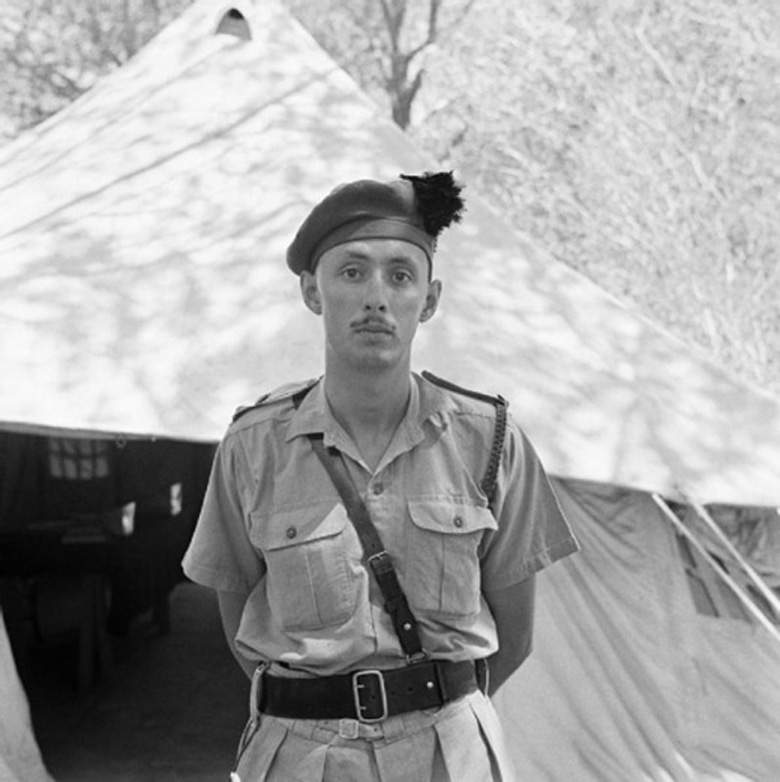Baltic Sea
The German steamer Schwaneck (2194t) sinks on a mine near Stettin.
[Battle of the Atlantic
- The British steamer Bovey Tracey (1212t) is sunk by German bombing northeast of Norwich. The entire crew are rescued.
- The Vichy submarine Le Heros sinks the Norwegian steamer Thode Fagelund (5757t) 35 miles east of East London, South Africa. The entire crew are rescued.
China
Gen Chiang Kai-shek urges immediate action by the democratic nations against Japan.
[Diplomatic Relations
Foreign Minister Shigenori Togo says an understanding with the US is still possible if Washington will 'understand Japan's national requirements and her position in East Asia and consider the situation as it exists there in the light of realities.' He also says any threat will be met with resolve and there is a limit to Japan's conciliatory attitude.
[Eastern Front
Alfred Rosenberg, the Nazi Party 'racial expert' and ideologist, is appointed to head a new Reich Ministry called the Reichskommissariat Ostland over the Baltic states and White Russia (Belorussia). His main tasks will be to exploit these areas for German economic benefit and to rid them of the 'undesirable elements' of their populations, such as Jews and Communist supporters. Throughout their occupation the German authorities treat the population with ever-increasing brutality. This plays into the hands of the Soviet authorities who are trying to organize partisan bands and ensure the continued loyalty of the people to the Soviet state.
In the fighting at the front the advance of 1st Pzr Group continues to go well in the southern sector near Rostov, but the Soviet 9th and 37th Armies begin a counterattack on the flank of the German drive. Gen Timoshenko is in overall charge of the Soviet forces in the south.
CENTRAL SECTORThe Stavka transfers the 30th Army from the Kalinin to the West Front to cover the crumbling Klin sector and provide support to the 16th Army. Rokossovsky's flanks have collapsed under the force of the German attacks and his divisions are being bled to death, 3 having lost touch with army headquarters.
SOUTHERN SECTORKleist pins down the 18th Army as it attempts to counterattack. The III Panzer Corps leads the assault that aims to bypass and isolate Rostov. To support the assault against Rostov, the German 11th Army transfers the 73rd Infantry Div to the 1st Panzer Group, which is pinning down the Soviet 18th Army as it strikes toward the city. The Soviet 37th Army also counterattacks, attacking without artillery preparation it pushes 10 miles into the German flank. In spite of this, the III Panzer Corps continues to concentrate its firepower upon the 56th Independent Army. The 56th has at its disposal 86,500 soldiers, while the South Front, minus the 12th Army, has a further 262,000 men.
To support the attack upon Rostov, Manstein's 11th Army hands the 73rd Infantry Division over to the 1st Panzer Army control. This move weakens Manstein's plan of attack on Sevastopol.
[Germany, Home Front
Col-Gen Ernst Udet, Director-General of Luftwaffe equipment commits suicide in despair at the ever-increasing losses in Russia, the failure of his bomber development program and his secondary role. He was 45. The true facts of his death are concealed by Göring until January as he announces that Udet is killed testing a new airplane and is given a hero's funeral. Field Marshal Milch takes his place.
[North Africa
In Operation FLIPPER British commandos led by Lt-Col Geoffrey Keyes raid Rommel's headquarters at Beda Littoria west of Tobruk. Rommel is away attending a birthday party in Gazala. Keyes is killed and only 2 commandos escape.
Lt-Col Geoffery Keyes |
 |